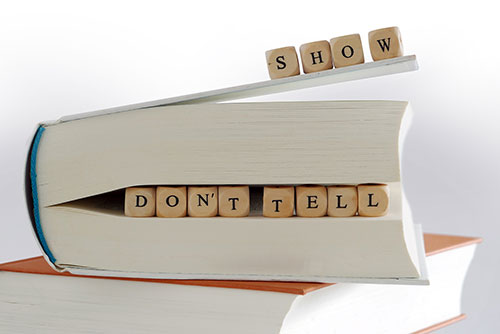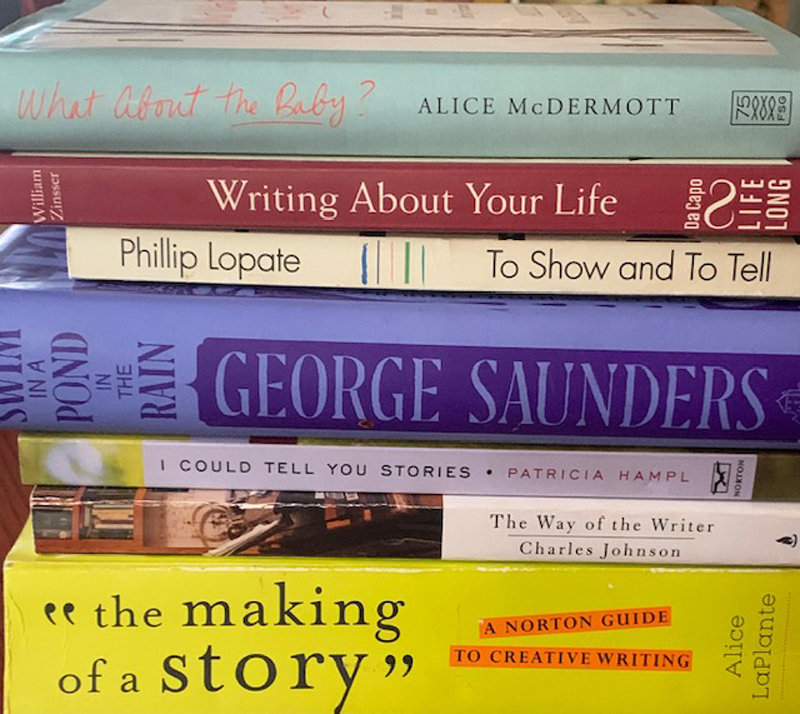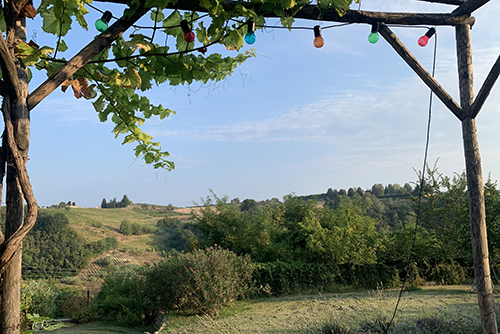Last Updated on April 3, 2023
 Professional know-how and savvy builds up over years of practice, but we seldom pause to think about where we learned what we know. Experience is clearly the best teacher, yet some of the most valuable lessons come directly or indirectly from mentors, bosses, and people we encounter whose spirit we admire. The editors and writers of LAEWG reflected on the source of some of their influences and insights, in order to tell who or what made a lasting impression on their professional lives. Most of us could have come up with other “lessons” and other stories, but these below were striking enough to be the ones that each of us chose to tell. — S.M.
Professional know-how and savvy builds up over years of practice, but we seldom pause to think about where we learned what we know. Experience is clearly the best teacher, yet some of the most valuable lessons come directly or indirectly from mentors, bosses, and people we encounter whose spirit we admire. The editors and writers of LAEWG reflected on the source of some of their influences and insights, in order to tell who or what made a lasting impression on their professional lives. Most of us could have come up with other “lessons” and other stories, but these below were striking enough to be the ones that each of us chose to tell. — S.M.
Kate Zentall
My first real-world job outside the family business was a summer gig during college in Grove Press's education department. Sharing an office with the director, Jules Geller, and his twenty-something assistant, I mostly typed out labels for professors requesting review copies and listened to stories about his friend Studs Terkel. Though I typed with two fingers, I was invited back for a second summer.
After college, I subbed for a vacationing receptionist/secretary at still-tiny, one-editor Workman Publishing and then was asked to stay. I took dictation not knowing shorthand, and I still could not type. But Peter Workman trained me as a proofreader and then as a copyeditor.
Neither Jules nor Peter gave me advice I can stitch into a sampler, but they led by example: Both were generous, wise, and patient — true gentlemen — and their implicit message to me was that if I loved what I did and tried to learn along the way, there would be room for me in this world of creating books. And they set a standard of integrity and proficiency that imprinted itself on me and that I have sought to meet ever since.
Lynette Padwa
One conversation that was eye-opening in terms of finding my way and standing up for myself in the professional world took place when I was giving notice at a publishing house where I had been managing editor for a couple of years. I was in my early thirties and had decided to quit my job mostly because of the tone-deaf and emotionally abusive company founder, who shall remain anonymous. I was eager to launch a freelance career. When I told him I was leaving and offered three weeks' notice, he begged me to stay longer — two or three more months. By way of convincing me, he leaned in and said, “You have nothing going on in your life. These books are important.”
In that moment, I realized the limitations of the typical employer-employee relationship. It wasn't personal; he simply couldn't fathom what value I had outside the job I was doing for him. I'd have to be my own relentless advocate. I gave him three weeks and got out of there.
Margot Dougherty
When I was a reporter at Life magazine, I always worked with photographers and wound up learning as much, or more, from them about journalism as I did from the editors back in the office. I often traveled with Harry Benson, whose unerring instinct about the nature of his subjects was complemented by an arsenal of one-liner tips for the reporter in tow. One, in particular, resurfaces still and has shaped a spectrum of my decisions, professional and personal: Never consolidate a disaster. The words, in Benson's Glaswegian brogue, hovered in a thought bubble while I interviewed a celebrity for the cover of another magazine. The actor, in an early phase of sobriety, as I recall, looked stricken when I asked even the simplest questions and his responses were so rudimentary as to be unusable. Feeling for the guy, and increasingly uncomfortable myself, I suggested we stop and call off the story. Never consolidate a disaster. He was so relieved, he loosened up and the interview continued apace. Benson's was a great lesson: When a situation is inexorably spiraling downward, the best course of action may be to step away.
Monica Faulkner
One of the first features I wrote when I was starting out as a freelance reporter was about a writing class led by the late Czech filmmaker and screenwriting teacher Frank (Frantisek) Daniel. He and his family had fled Prague in 1968 and settled in the U.S., where he became a legendary teacher as well as an administrator at the American Film Institute, Columbia University, the University of Southern California, and the Sundance Institute.
He gave the class a wonderful exercise to help them get to the heart of human stories. It went like this: Think about a person you know. The special thing about this person is that he or she is handicapped by the inability to love. Make guesses about why he or she is that way. Think about what this person recalls about his or her own life, what moments, memories, heroes, villains, triumphs, and defeats are in his or her recollections. The more trouble you can make for your character, the better. What interests audiences are the obstacles you create for your characters and how they face them.
When working with writers, I often draw on what I see as Daniel's deeply human approach to story, character, and meaningful dramatic conflict. Many years later, I'm still grateful to him for what he taught me.
Suzanne Mantell
I was at the very beginning of my career as an editor, which started at Harper's Magazine. My title was Assistant Production Editor, a job that entailed proofreading everything that went into the magazine. I didn't yet know much about editing, or proofreading, but I read a lot and appreciated good writing. We had a piece coming in by Norman Mailer, who was at the height of his fame at that point, and his piece, which was very long and subsequently became a book, arrived late. I pored over the galleys at work, marked them up carefully, sent him a copy, and arranged for a time to confer. Because of his lateness and the printer deadline, our talk was scheduled for a Saturday morning. Saturday came and he called me at home, that is to say, a cramped apartment in Greenwich Village. We spent an hour on the phone, going over the galley proofs for his changes and my questions. It was very exciting — a famous author on the phone, talking about his writing! Mailer's changes were substantive — mostly adding information and correcting errors. My questions primarily involved style: word choice, clarity, repetitive phrases, placement of commas. He gave his attention to each question and suggestion, no matter how minor they were. Some he accepted, others he rejected, but all were things he considered carefully. From this experience I learned that the best writers are open and thoughtful to other people's ideas. This lesson was brought home to me time and again in subsequent years as I worked with other famous and not yet famous writers. The better the writer, the more thoughtful and open to other people's ideas he or she is. The opposite, I have also learned, is equally true.
Amy Friedman
The lesson that has always stayed with me, and that always rises to the top when I think of lessons, came via David Prosser, now the literary and editorial director at the Stratford Festival, but back in the day, my editor at a small Canadian newspaper and the man who taught me how to approach folks I was interviewing and/or editing. “Treat them as if this is a first date, and you're pleased,” he said. At least that's the way I remember his saying it — though he probably was more eloquent, and his Scottish accent made it sound all the more critical. What he meant, and what I learned, was that when we are working with someone, when we have their thoughts, words, and ideas in our hands, we must pay close attention, treat that person as if he or she is the only person in the world, and the most intriguing and important. Not every client (or interviewee) is a dream date, but in treating people and their work as David always treated me and mine, my career — as writer, writing teacher, editor, and ghostwriter — has been rich beyond imagining.
Laura Golden Bellotti
I had never considered myself a harsh critic. In fact, when I began my career as an editor I worried that I didn't edit enough — that I too readily accepted an author's unedited words and censored my editorial perspective. As a newcomer to the profession, my initial insecurity fueled a skeptical inner voice that asked: Who are you to question or advise an author who is an expert in their field, who has a national following and a doctoral degree? Eventually that voice was quieted as I acquired more experience, followed my editorial instincts, and received positive feedback from my colleagues and authors.
Well, not unanimously positive. In fact, what I had assumed were constructive edits brought one reputable author to tears. He called me at home one evening and began to cry, crushed by my comments and suggestions. Taken aback, I gently explained my rationale for the suggested changes, we talked it over, and his tears subsided. But after we hung up, I was a bit shaken. I wondered if I had, indeed, become a harsh critic. Given how sensitive this particular author was about his manuscript being questioned, should I perhaps have “edited” my professional opinions?
But then I heard from an experienced inner voice that had taken me years to develop: You're an editor. It's what you do. You're not harsh, you're just honest… and supportive.
And sometimes a shoulder to cry on.
Lori Kozlowski
One of my very first editors gave me advice that I have kept with me as an editor and as a writer: "A good writer can write anything." I believe that — and with every writer I have worked with, I use that idea to let them explore new topics, subjects, angles, and even formats they may never have tried before. It's important to take chances in writing, as in life. And to believe in writers, sometimes even before they believe in themselves.
Sharon Goldinger
One of my publishing mentors was in a disagreement with a client and was about to write him an e-mail. But, he told me, he was going to wait a day before sending it. Never respond to an e-mail, call, or letter when angry or upset, he said. It was great advice. As a result, I always give myself twenty-four hours before I respond so I can be sure that I do so in an intelligent, calm, and businesslike manner (even if the other party doesn't). When writing an e-mail, I also never include the recipient's address until I have completely written the message and proofed it. I put my name in the address line just in case I hit the send button before I'm finished.
Barbara De Santis
Years ago I read an interview in The Paris Review with editor extraordinaire Robert Gottlieb, who in his long career at Knopf and elsewhere edited countless authors including John Cheever, Ray Bradbury, Edna O'Brien, Elia Kazan, Toni Morrison, Salman Rushdie, John le Carre, and V. S. Naipaul.
“An editor has to be selfless,” Gottlieb told the interviewer, “and yet has also to be strong-minded. If you don't know what you think, or if you're nervous about expressing your opinions, what good is that to a writer?" He talked about surrendering to a book: “If you do, when something in it seems to be going askew, you are wounded. The more you have surrendered to a book, the more jarring its errors appear.” Editing, he went on, requires the editor always to be open, always to respond. “It is very important, for example, not to allow yourself to want the writer to write a certain kind of book. Sometimes that's hard… Inevitably you will like some of a writer's books better than others. But when you're working on a manuscript, that can't matter. You have to be inside that book and do your best to make it as good as it can be. And if you can't approach it in that spirit, you shouldn't be working on it." Gottlieb's words have stayed with me ever since.
Nomi Isak
My first lesson about being a good editor came from my mother, who was a successful playwright and television writer. When I was a child, she was part of a writers group that met in the various participants' homes. When they held the meeting at our house, I was allowed to sit in. The group practiced what my mom called constructive criticism. But one guy apparently was not always constructive with his feedback. At one meeting, I listened as this man took his turn to critique another writer's work. He started in much the same way others had, talking about the writing in fairly neutral terms, but as he spoke his remarks grew edgier, his tone more aggressive. I could feel the tension mounting in the room and saw my mother scoot to the edge of her seat. When the man veered from critiquing the writing to a malicious review of the writer's abilities, my mother jumped to her feet. “Enough,” she said. “This is my home. No one is a bully in my home. Out!”
Lessons learned:
- Keep feedback constructive and stay focused on the writing, not on the writer.
- Honest feedback can and must be delivered with kindness.
- My mom was awesome.
Deborah Lott
I'm not sure how to attribute this “advice” because it's something I've learned and had to relearn over and over again in writers groups: No matter how good a writer you think you are, you still need an editor. No matter how good an editor you are of other people's works, you still need an editor for your own writing because inevitably you will have blind spots about your own work. The edits you least want to hear about your own writing are probably the ones you most need to hear.
Jenna Rose Robbins
Years ago, I read an article about how women are prone to using "weak" language in their writing, particularly in communications such as e-mail. Apologies and phrases such as "I feel" (vs. "I know") were far more prevalent in female writers than male writers, the article stated, citing a study. Although I've been unable to track down that original article, I've found a few that cite similar findings — and even discovered a Gmail plugin that alerts writers when they're using words that undermine the intended message.
The article prompted me to add a new item to my copyediting checklist, for my work as much as my clients'. I've definitely noticed a tone change in the responses I receive to my e-mails and, although most have been positive, the few negatives ones cause me to reexamine my relationship with the responder.
- Invaluable Lessons I Learned About Editing From “Turn Every Page" - January 3, 2024
- The Benefits — and Fun — of Freewriting - February 20, 2023
- Writerly Reassurance From a Few Who Have Been There - March 24, 2020



